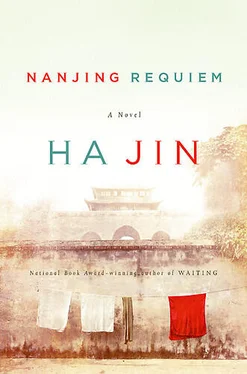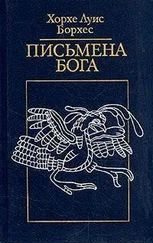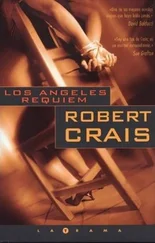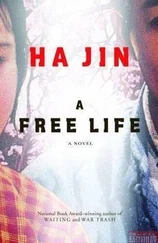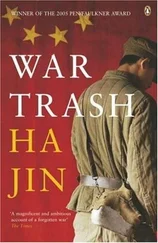“This isn’t something people would talk about. I thought I’d let you know one of these days, but for a long time I had no evidence to back up my guess. Who could’ve imagined the girl would kill herself?” I lowered my eyes and wished I had informed Minnie after Wanju showed up at the infirmary.
“Where are the other five girls?”
“I don’t think they’re still here except for Meiyan, Big Liu’s daughter.”
Without another word Minnie spun around and clumped down the stairs. She went out alone.
Meanwhile, I called in the janitor Hu and Old Liao. They carried the body to a flatbed cart and hauled it away. Minnie turned up, and we followed the men to the hillside beyond a small orchard. We picked a spot on the slope of a ravine and set about digging.
Hu and Liao dug by turns, and I helped them a little, not being strong enough to dig with a shovel for longer than three minutes. When the grave was almost a foot deep, tubby Hu, his sparse hair stuck to his flat forehead, had started gasping “umph” at every thrust with the shovel. Minnie took over the job. She worked with all her strength, leaning the weight of her body on her right foot on top of the scoop and drawing herself up halfway when tossing out the dirt. She swung the shovel with a rhythm, and her supple movement impressed us. I knew she had grown up in a farm village and done all kinds of work in her childhood. She had also been a basketball player at the University of Illinois at Urbana-Champaign, where she got her BA, so she was “sturdy as a Clyde,” in her own words. Soon she began breathing audibly, yet she applied herself harder. From time to time tears welled out of her eyes and mixed with the perspiration on her cheeks. She was huffing and puffing, while her nose seemed blocked.
“If only we could give her a coffin,” Minnie said a few minutes later, handing the shovel to Old Liao.
“I wish we knew where her folks are,” I said, “so they could take her home.”
Crows wheeled around in the limpid sky, letting out grating cries. Two feral dogs, both spattered with mud, stood nearby, pawing at the ground and touching it with their noses, as though they were planning to dig out the interred girl once nobody was around. This reminded us that we must bury the dead at least two feet deep. Old Liao regretted not having brought along a reed mat in which we could roll up the body.
“Wanju, please forgive us,” Minnie said, as the men laid the girl in the grave. They began shoveling the dirt back into it. I took the shovel when they needed a breather.
After burying her, we stood in silence before the pile of earth for a while. Minnie said, as if to promise the dead, “I will never let this kind of crime happen in our camp again. I’ll do everything I can to protect the girls and women. If I have to fight the soldiers, I will fight. I won’t be a coward anymore.”
I said, “Rest in peace now, Wanju, and forget about this unjust world. I’ll come tomorrow and burn a bunch of joss sticks for you.”
Then Minnie crouched down, no longer able to suppress her emotion. She wailed, “It was also my fault, Wanju. I should have stayed in the compound to stop the Japanese from snatching you away. After you came back, we should have given you more help.” Minnie paused, then continued, “Rest assured, those beasts will be brought to justice. God will deal with them on your behalf.”
I felt so sad that I began weeping too.
Old Liao and Hu helped Minnie up, and together we headed back to campus. Hu was pulling the cart with a leather strap around his shoulder.
We washed our faces in the ladies’ room, then went down the hallway to the president’s office. Big Liu was in there, seated on a sofa and absentmindedly leafing through his small textbook. When we stepped in, he lifted his eyes and peered at Minnie wordlessly.
She sat down and told him about the suicide. He responded calmly, “I heard about it.”
“I’m such an idiot,” she said.
“Don’t blame yourself, Minnie. It was the Japanese who killed her.” His voice was somehow devoid of any emotion.
“I cannot do our Chinese lesson today — my mind is too full.”
“I understand,” he said.
“Don’t go, Anling,” Minnie urged me.
So I stayed, and together we discussed the progress of the petition. Sufen had just reported to Big Liu that she’d seen her son four times now. The boy had told her that the prisoners were sent to tear down houses and build a bridge outside the city, though many of them were too ill to work anymore. They were each given two bowls of boiled sorghum a day, plus a few pieces of salted turnip or rutabaga. Once a week they could have rice. He begged his mother to find a way to get him out soon or he would perish in there. She promised to do that, though she had no idea how. He also asked her to bring him some food, which she couldn’t come by either.
By now more women had participated in the petition: in total 704 had filed. We decided to take the list to Dr. Chu and hoped he would present it to the office in charge of such a matter.
MINNIE AND I SET OUT to see Fukuda at the Japanese embassy with the petition. The moment we turned onto Shanghai Road, we saw that numerous ramshackle stores, mostly built of used plywood and corrugated iron, had emerged on both sides of the street. Many of them were just small stalls manned by one person. There were all sorts of things for sale and barter: door planks, windows, lamps, cast-iron stoves, furniture, stone hand mills, utensils, musical instruments, clothing, used books, and magazines. As for food, there were baked wheaten cakes, fried twists, tofu, vegetables, eggs, pork, and pig offal, all five or six times more expensive than before the occupation. I bought a smoked chicken for seven yuan for Liya, who had been weak after her miscarriage, often coughing and sweating profusely even without exerting herself. “This is like eating silver,” an old woman kept saying, watching the vendor wrapping up my purchase in a piece of oil paper. I made no reply and felt that money might get more devalued anyway, so it was better to spend it now.
The city was strictly guarded, and whoever was without a mingto , the ID certificate, would be arrested. The soldiers would strip people of whatever was valuable on them — a pack of cigarettes, a fountain pen, a pocket harmonica, even a brass button from a coat. They also examined men who looked like potential fighters, making them stand at roadsides, shed their jackets and shirts, and spread their arms; if a man had a vaccination mark, they would detain him, believing it was a shrapnel scar. The Japanese seemed apprehensive, especially troubled by the guerrillas, who attacked their sentry posts in the countryside and blocked their transportation routes. Lately so many trains had been derailed that the railroad service had become erratic, and sometimes there was no train to Shanghai three days in a row. What was more troublesome was that the guerrillas fought outside the norms of conventional warfare, harassing small Japanese units day and night, blowing up isolated fortresses, and ambushing convoys. Once in a while artillery bombardments could be heard in the early-morning hours and within five or six miles of the city, as if another siege was impending. Meanwhile, the new regulations allowed few foreigners, much less Chinese, to leave Nanjing, though more Western diplomats had returned.
Near the Japanese embassy an opium den flaunted a banner that read OFFICIAL EARTH. Narcotics used to be banned here, but now anything was legal for sale. Evidently the majority of the goods were loot from outside the Safety Zone. After the soldiers had plundered the houses, the civilians would go in and gut them, taking whatever was useful or salable. For many people, looting had become a way of life, because there were no jobs. The Safety Zone was relatively safe for doing business, so most vendors brought their goods here.
Читать дальше
